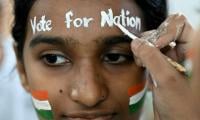There is a powerful narrative on the economy that has captivated the imagination of the current government and its support base: taxation as the panacea for the country’s economic woes.
Prompted by local and foreign policymakers and repeated ad nauseam by television anchors and government spokespersons, this narrative seems to believe that the best gauge for an economy’s strength is its revenue generating capability. Naturally, the main impediment in achieving this goal is the ‘undocumented’, ‘informal’ or ‘black’ economy, which emerges as the central villain of the story.
This is the arena of shady politicians and unscrupulous traders who make illicit payments, evade taxes and plunder the public exchequer, leaving honest taxpayers – who happen to be salaried professionals and the government’s core support base – to suffer the consequences. These salaried professionals emerge as both victims and heroes of this narrative, with their slogan of ‘bringing the black economy into the tax net’ becoming the rallying cry of the current dispensation.
Of course, like all elegant but simplistic narratives, there are several aspects of the economy’s relationship to taxation which this story entirely overlooks. Three omissions stand out in particular: first, the historical association of taxation with predatory, unaccountable government; second, a lack of appreciation for the heterogeneity of the informal economy and tailoring policies appropriate to this reality; and third, confusion regarding trade-offs between tax collection and goals of growth and enhanced governance. A consideration of these three points could provide some answers as to why the government’s laudable revenue generation goals may find considerable resistance from society and why any viable taxation policy would have to take these into account.
As historians have pointed out, the experience of colonialism was crucial in processes of modern state building in Asia and Africa, thereby inextricably linking taxation to the colonial state’s legitimacy. The normal strategy of colonial rule in India was a relatively thin state apparatus of poorly paid lower bureaucrats – termed ‘government on the cheap’ – who were viewed as agents of extraction for a state that provided them with little or no benefits. Instead, the forms of governance that ordinary people relied on were hinged on ‘local intermediaries’ – zamindars, tribal leaders, caste/kinship councils, religious and urban elites – rather than the central state, which appeared remote and impersonal.
In such a context, increased taxation was associated not with better service delivery or political voice, but with covering the cost of an ineffective and often oppressive government; in other words, it was viewed as predation on the weak. No wonder then that anti-colonial struggles often took the shape of opposition to new taxation. Popular opinions about the FBR as well as recurring protests against new taxes show deep continuities with the past in the postcolonial period as well.
Without recognizing these historically evolved and deeply embedded understandings of taxation it is difficult for any government to make sustainable policies. Unfortunately, the current taxation drive is taking place precisely at a time when businesses are reeling under one of the worst economic slowdowns in the country’s history. In addition, there is a widespread belief that the drive is being undertaken not in consultation with local stakeholders, but at the behest of the IMF and other international donor agencies. Moreover, few expect that this taxation will result in any tangible benefits in terms of health, education and infrastructure in the near future, and view it primarily as rapacious behaviour on the part of government officials to cover the cost of running an inefficient state machinery.
The acrimony between the centre and provinces over revenue generation in the post-18th Amendment dispensation provide further credence to such opinions. Therefore, notwithstanding the backing of powerful institutions and sections of the media, the current taxation drive is most likely to further the historical association of taxation with predation in the minds of the general public.
The second problem in the government’s narrative is the view that any economic activity that is undocumented is ipso facto beyond the pale of ‘regulation’ and, therefore, a drain on the formal economy. This is a deeply problematic yet unsurprisingly widespread misconception. First of all, by all measures – even the most conservative – the informal economy employs more than 70 percent of the workforce and contributes to more than 50 percent of GDP. It is therefore not merely residual but the majority of the economy itself.
Like all large economies, it contains a heterogeneous range of actors with different motivations for remaining informal as well as highly sophisticated mechanisms for regulation that are tied to the formal economy by a thousand threads. And, even if they are informal, many enterprises may be making a range of payments to state and non-state actors, some of which may be considered more appropriate by them than paying a remote and extractive state machinery.
To give a few illustrations, not merely the motivations but the very meaning of ‘formalization’ would be different for a firm with a daily turnover of a million rupees, for example, and a vendor selling vegetables at a street corner. Formalization for the street vendor – and millions like him at the bottom rungs of society – would mean secure sites for work due to competition for urban space and an end to harassment, evictions and bribes from government officials; bringing them into the ‘tax net’ on the other hand, would be a sure destruction of their livelihoods.
For richer firms in the informal sector, the situation may be more complex: motivated by evasion of labour laws, a highly complicated and inflexible tax system and encouraged by pliable tax officials who are more than willing to ‘settle’ through informal payments than official taxes. As a result, the notion that businesses are outside the tax net seems outrageous to most businesspeople even as it is difficult for both them and state officials to admit to the nature of these ‘taxes’.
A viable tax policy would therefore have to take both the heterogeneity of the informal economy as well as the range of existing payments to officials into account. Instead of painting them as immoral, the government should be sensitive to the context in which such payments arise and find creative ways of incorporating them into the formal system of taxation. Of course, making the existing system less complicated would be a perennial part of the solution.
Finally, there is an urgent need for greater debate among policymakers to develop a more nuanced understanding of the relationship between taxation and other economic goals. As stated in the beginning of this article, the current economic discourse is reductively presenting the problems of the economy as stemming from a lack of tax collection. In reality, things are more complicated; for example, Bangladesh has a slightly lower tax-to-GDP ratio than Pakistan, yet by most measures its economy is more dynamic than many developing countries. It has prioritized high economic growth through greater investments and exports than revenue generation through taxation: its gross fixed capital formation as a percentage of GDP is a whopping 31 percent as opposed to Pakistan’s dismal 15 percent and it exports goods worth over $40 billion to Pakistan’s paltry $25 billion.
On the flip side, many economic analysts are partly blaming the current economic slowdown in India on the new GST regime – initiated with much fanfare by the Modi government – which has dampened demand by increasing costs of production. In short, the relationship between taxation and other goals may not be as straightforward as the current discourse assumes.
None of these arguments is an indictment of taxation in the abstract – indeed, taxation is necessary for any viable state to function. At the same time, a sober assessment of the problems in the current taxation regime, and a realistic target (say India’s 17 percent of GDP rather than China’s 25) to be achieved over a few years, seem necessary. Most importantly, any taxation policy must align closely to the actual aim of an economy: to provide decent livelihoods to a majority – if not all – of its citizens.
The writer is a postdoctoral research fellow at Wolfson College, University of Oxford.
Email: muhammad.jan@wolfson. ox.ac.uk
A woman walks past a building of the International Monetary Fund. — AFP/FileThe annual and spring meetings of the...
Late Benazir Bhutto's daughter Asifa Bhutto Zardari addresses the Christian community in Bihar Colony on January 23,...
Representational image. — PexelsWater is an important scarce natural resource that is required for several everyday...
Pakistani employees of online marketplace company Kaymu at work in Karachi. — AFP/FileThe true spirit of development...
India uses Afghanistan as a backstage area to carry out terrorist attacks against Pakistan
Another report by the Pakistan Institute of Peace Studies states that 78 per cent of attacks have been carried out by...







